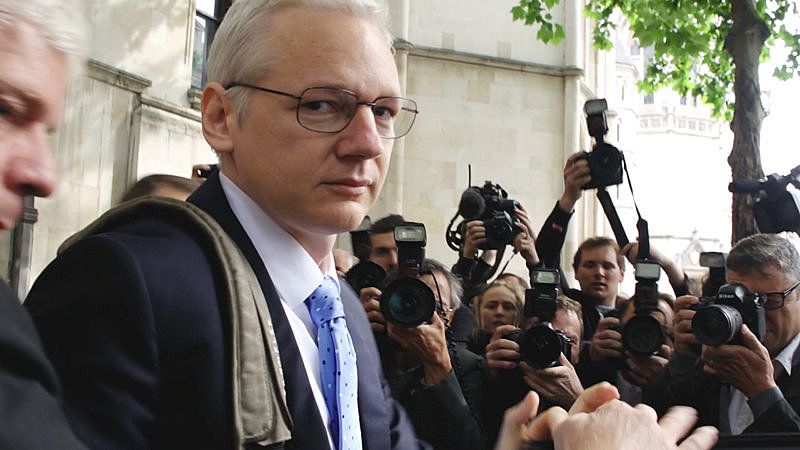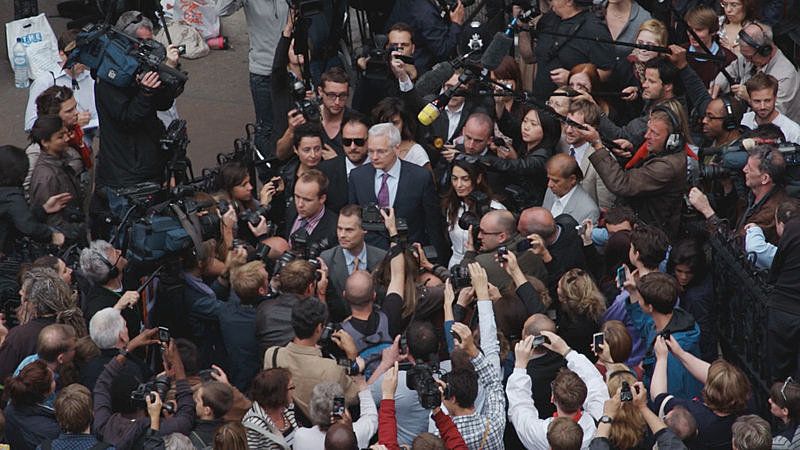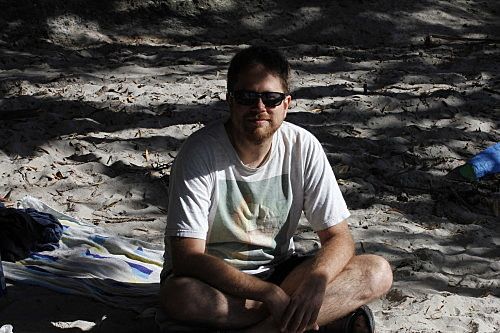Nothing Easy To Digest: A Review of Risk
Doug Dillaman considers the elusive character of Julian Assange in Risk at this years New Zealand International Film Festival.
Doug Dillaman considers the elusive character of Julian Assange in Risk at this years New Zealand International Film Festival.
“A movie is never finished, only abandoned.” George Lucas’s famous riff on da Vinci has been invoked repeatedly over the years, but it’s rare to encounter a film that so fully illustrates both sides of that aphorism as Laura Poitras’s long-gestating documentary Risk. Born of the intent to make a documentary on American surveillance and filmed over several years, it was received at its debut in Cannes 2016 as a largely sympathetic portrayal of WikiLeaks founder, Julian Assange. Then, it almost immediately disappeared from public sight.
Now, Risk has re-emerged with what seems to be a wildly different form. In addition to adding less flattering scenes of Assange (as well as adding his WikiLeaks compatriot Jacob Appelbaum, whose early heroism is similarly stained with accusations of sexual misconduct and abuse), the sweep of the film has extended to include, not just extended discussion of, Assange’s rape and sex crime accusations but also the political unfoldings of the 2016 US election, and the post-election fallout, including the accusations of Russian collusion with WikiLeaks.
All this – and Chelsea Manning, and a cameo from Edward Snowden (previously seen in Poitras’s excellent Citizenfour), and self-questioning diary entries from Poitras herself (including an acknowledgement of her own relationship with Appelbaum, and knowledge of his abusive behaviour), and even, of all people, bloody Lady Gaga –- is an insane amount for a documentary to absorb and digest, and it should be no surprise that Risk doesn’t. With a three year gap in filming, and such a radical re-edit, it simultaneously feels like a film that hadn’t yet found its form and a film that needed to be let loose into the world.
Which is not to void it of merit: Risk is at its best when it plays to the strengths that Poitras has displayed in Citizenfour and The Oath – steely patient observation, sober analysis, and a sense of the unusual telling detail, such as a scene where Assange’s comrades are unnaturally absorbed in cutting his hair. But without the intrinsic dramatic structure of Snowden’s flight and the subsequent publishing of his secrets, Risk struggles to carry a cumulative weight. (There’s a reason that most dramas don’t end with their protagonist hanging out in the basement of an Ecuadorian embassy for several years, after all.)
And what of Assange? I came in with what little respect I had for him lying in tatters after the events of the last twelve months. Surprisingly, despite Assange’s vituperatively negative response to the film, including cease-and-desist letters to lawyers, I found myself leaving Risk with a measure of grudging respect. “If you're not fighting for the things you care about, and every day is disappearing, you are losing.” It’s Assange’s credo, and it’s clear (whatever other misgivings you might have about his honesty) that he cares deeply, philosophically, in the belief that governments should be open and transparent.
But the failing in Assange’s thinking is his lack of understanding of the power of non-state actors, or the capacity that states have to abuse their power. And while it doesn’t always make for satisfying viewing, Risk tries to be open in its intents and omissions in a way WikiLeaks never could be, and the result is a curiously resonant film that provokes more thought than Citizenfour. Of course, I consider Snowden a hero, and it’s easy to digest a hero defending your ideals. There’s nothing easy to digest about Assange. Why should a film about him be any different?


